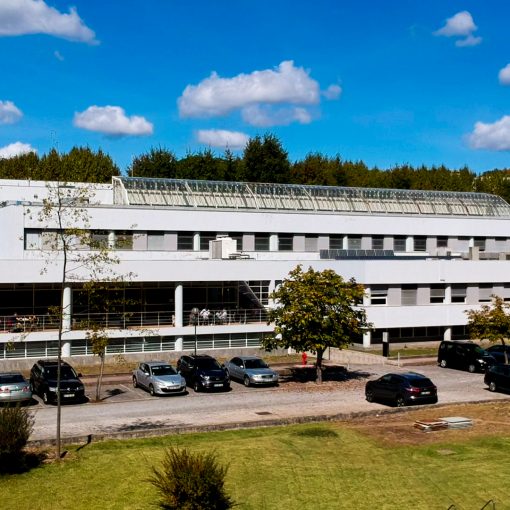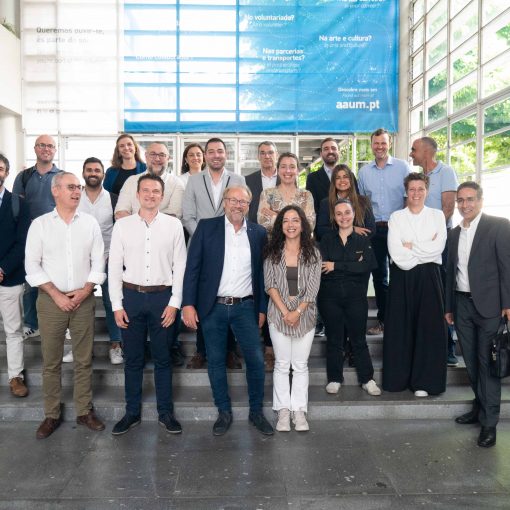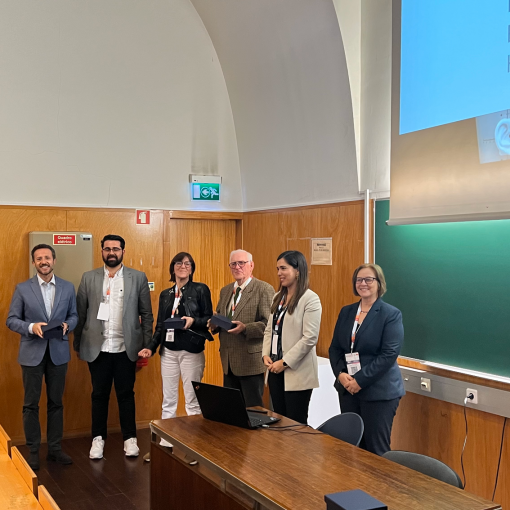 The School of Engineering has maintained its commitment to fight the pandemic caused by COVID-19, giving rise to new initiatives led by its research centres, departments, students and alumni, as well as several other members of the academic community.
The School of Engineering has maintained its commitment to fight the pandemic caused by COVID-19, giving rise to new initiatives led by its research centres, departments, students and alumni, as well as several other members of the academic community.
Fibrenamics is one such example, having organized the online event “(Re)Pensar o Futuro”, which took place between the 20th and 24th of April, bringing together specialists from Science, Technology and Business, including the President of the School of Engineering, Pedro Arezes, to discuss solutions to the challenges that have been imposed on society and companies in particular.
In addition to this event, Fibrenamics also launched some White Papers on masks, gowns and protective gloves, in order to help companies that are redirecting their manufacturing lines to the production of this personal protective equipment. The document is available for download at: https://www.fibrenamics.com/pt/intelligence/reports/mascaras-de-protecao
The R&D platform is also engaged in the development of social masks, integrating an extensive consortium with several universities and companies; of filter masks, with the companies POLEVA and VALMET; and of nonwovens for level 1, 2 and 3 masks with the company VALMET.
Another example of an initiative in this field is the production of certified reusable community masks by Adalberto stamping company, led by Mário Jorge Machado, a Polymer Engineering alumnus at EEUM. The company is one of the first to be certified by CITEVE – Centro Tecnológico das Indústrias do Têxtil e do Vestuário (Technological Centre of Textile and Clothing Industries) for these masks, which were designed with the support of UMinho and several Portuguese and Dutch laboratories, to provide them with functional, antimicrobial and bacterial and virus retention finishes, together with a humidity and odour manager. More information about this initiative can be found at https://alumni.uminho.pt/pt/news/Paginas/01/04/2020/Adalberto.aspx
Also the researcher Carlos Baquero, from Haslab Research Centre, is included in an international team of researchers that is developing the international study “Measuring the Iceberg” to determine the incidence of the pandemic, estimating the number of real cases with symptoms of COVID-19, and their evolution in 11 countries, based on an open online poll (available here ). Carlos Baquero says “We don’t want to create scaremongering. Our aim is to improve this type of instrument, validate its use and apply it in the future in other situations. In regions of the world with less laboratory testing capacity, but where digital media already offer good coverage, this type of approach could prove to be a useful complement to the rapid monitoring of the evolution of pandemics”. The results of the study are being updated daily and can be consulted at https://coronasurveys.org/



